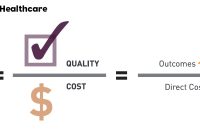From Data Overload to Workflow Efficiency
In an era dominated by vast streams of data—from decision-support tools and patient records to external data sources—our challenge is no longer acquiring information but ensuring its strategic prioritization, seamless integration, and practical utility. To enhance care without adding undue burden to clinicians, it’s imperative to rethink how information is curated and incorporated into clinical workflows. The Growing… Read More »









